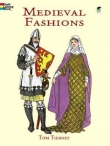
Текст книги "The Book of Q"
Автор книги: Jonathan Rabb
Жанр:
Триллеры
сообщить о нарушении
Текущая страница: 18 (всего у книги 28 страниц)
“Like killing Serbs?”
“Yes. Like killing Serbs.” He waited, then looked over at Pearse. “Not all that enlightened, I know. But there it is.” Focusing again on the road, the hint of a grin now on his face, he added, “We’re a sort of an eye-for-an-eye kind of people. Never really been that much room in this part of the world for turning the other cheek.”
Pearse smiled to himself. “I wasn’t aware the KLA set its policy based on scriptural debate.”
“Just the overall strategy,” Mendravic said. “Too many different kinds of scripture floating around these parts to map out the day-to-day game plan.”
It was remarkable how easily they slipped into the familiar sparring, even after eight years. Pearse was about to let loose with his next jab, when he suddenly stopped.
Instead, he flicked on the flashlight and looked down at the pages on his lap. Something in what Mendravic had just said. Scriptural mapping.
“What?” prodded the Croat.
Lost in the pages, Pearse slowly realized that each of the five-line entries had a peculiar quality to it, something he would never have seen had he continued to attack each one as an individual cryptogram. Reading them as continuous phrases, he saw that each of them produced a kind of singsong cadence, almost a lilting meter, as if it was meant to be spoken aloud.
So do I stretch out my two hands toward You,
All to be formed in the orbit of light.
When I am sent to the contest with darkness,
Knowing that You can assist me in sight.
The fragrance of life is always within me.
Like a piece of Scripture. Like the verse of a prayer.
He felt a swell of satisfaction, quickly doused by the realization that he had no idea what it meant. This was no verse he recognized. Pieces of Scripture or not, the five-line entries remained a mystery.
He was about to tell Mendravic, when he noticed a sign indicating a split in the road just ahead: east to Visegrad, west to Rogatica and Sarajevo. From there, another twenty minutes to the “town on the Drina.”
When Mendravic opted for the Rogatica turnoff, Pearse shot up in his seat. He began to point in the other direction.
“What are you doing?” he asked.
“It’s after ten,” said Mendravic. “Visegrad’s not exactly a tourist spot since the war. Much better chance of finding a hotel nearer the city.”
Watching the Visegrad road disappear, Pearse knew Mendravic was right. After all, what could they accomplish tonight? He was too tired to make sense of the recent discovery. He needed sleep to clear his mind.
They drove for another half an hour, Mendravic intent on the roads, Pearse with his head in the book. Surprisingly, Mendravic was rather familiar with Rogatica and its surroundings. Mumbling street names to himself, he seemed to be in search of a specific hotel. After several miscues, they finally arrived at what looked like an apartment house, six stories of dull gray brick.
“This doesn’t look like a hotel,” said Pearse.
Maybe it was his preoccupation with the final set of entries, or the cumulative effects of the last week, but it wasn’t until he saw Mendravic smiling back at him that Pearse realized where he had been taken.
“You’re not very bright, are you?” asked Mendravic.
The Croat leaned forward in his seat and peered up at the building through the windshield. “Fifth floor. Second in from the right.”
Pearse couldn’t bring himself to lean forward.
“This was your second request, wasn’t it?” Mendravic sat back, the grin once again in evidence. “Shall we see if the two of them have room for us tonight?”
Dona Marcella pulled the half glasses from her face and placed the papers on the coffee table in front of her. She waited for Blaney to finish reading.
She hadn’t been to his rooms off the Giardini del Quirinale in years, the priest, by the look of them, well taken care of by his Chicago archdiocese. Thick velvet drapes hung across the twelve-foot windows, the furniture distinctly Edwardian, a bulky mahogany roughness befitting the man seated across from her. Browns on browns, with a hint of maroon here and there. What few splashes of color he permitted came from a pair of large vases standing on either side of a rather dour sideboard.
“Am I actually supposed to believe this?” she asked when he finally looked up.
“I don’t think you’re the one they’re trying to convince,” Blaney answered.
“It’s all tabloid.” She reached for the paper nearest to her. “ ‘Gelli’s Ghost Returns,’” she read. “Complete nonsense.” She tossed it back onto the table. “The morning papers won’t be so quick to swallow all of this. Who’s going to believe Arturo capable of such things?”
“He was found with the papers, the discs.”
She waited before answering. “If what they say is true, this will make the whole Calvi business look like a minor inconvenience. This isn’t going to be the usual mop-up. I’m going to need time, and I’m not sure I have it.”
“That’s not what worries me,” said Blaney. “Weakening the bank only makes the church more vulnerable, raises the specter of corruption. Which makes the job of the ‘Hodoporia’ all the easier. The question is, did he leave anything on those discs to link us with the bank?”
“That’s exactly my point; the church isn’t the issue.” Frustration forced her up from her chair. “Tell me he wouldn’t have been that stupid, John?” Blaney started to answer. She cut him off. “What does Erich say?”
He shook his head dismissively. “No idea. He’s unreachable. The novemdielesconcludes tomorrow morning. They’ve already started to convene the conclave.”
“Not the best timing.”
Blaney nodded. “Unless it’s what he was planning all along.”
It took her a moment to respond. “And what is that supposed to mean?” When he didn’t answer, she pressed him. “You can’t be serious? Why would Erich have had any part in this?”
“Let’s just say I’m not so sure his faith in the ‘Hodoporia’ is what it once was.” He let the words sit for a moment. “He’s very fond of reminding me that it’s a ‘complicated world.’ And a complicated world demands complicated answers.” Again, he shook his head. “There’s very little I’d put past Erich now. Despite all of Arturo’s fidgeting, he was a remarkably fit man. Prided himself on it. He was also something of a hypochondriac. A man like that doesn’t suddenly collapse in the Piazza di Spagna for no apparent reason.”
“And you think Erich would have …” She couldn’t finish the thought. “Why?”
Blaney sat back and let his eyes wander. For some reason, they stopped on a small crystal lamb nestled within a group of pictures-a gift from his very first parish. Something long forgotten. He stared at it, then turned to the contessa. “Because the thought of anyone else having something to do with this is even more unsettling.”
She had sounded excited over the intercom, Mendravic announcing only himself, the real surprise left for upstairs. It had taken a good ten minutes for Pearse to get out of the car, the prospect of meeting his son somehow less daunting than seeing her again. He had no idea what to expect from the boy. With Petra, though, he knew what he wanted to hear, what had been running through his head since this afternoon. Nothing to assuage. No attempts to let him off the hook, tell him it had been for the best. He had outgrown that kind of coddling.
Inside, he quickly fell behind, nearly a full flight below by the time Mendravic reached the fifth floor. Moving slowly, Pearse heard the chirped “Salko” from above, an excited Petra at the top of the stairs, the sound of an embrace, an instant of laughter. He stopped, listened for a moment, then continued on. Rounding the final turn, he saw her arms clutched around Mendravic’s enormous bulk, her face resting on his shoulder. Her eyes were closed, a moment to see her as she was, as he knew she would be.
And then her eyes opened. No change in expression. No hint of movement. Only the eyes peering down at him.
Somehow, Mendravic sensed it. Without a word, he pulled away and moved off down the corridor, the sound of a squealing hinge in the distance a few moments later.
The two of them continued to stare.
Whatever image Pearse had carried with him for the last eight years came to life as she looked down at him. If she had aged, it was only around the eyes, one or two creases. The battle with her hair continued to rage on, the familiar wisps draped along her cheek. She wore a simple shirt, skirt-something he had never seen before, never even imagined on her-ankle-length, bobbing atop her bare feet.
She leaned back against the railing. Silence.
“Hey,” he said finally, regretting the choice before the word had even left his mouth.
“Hey,” she answered.
“You look-”
She nodded to herself before he could finish the thought. “I look great, right?”
Again, he realized how stupid it must have sounded. He tried a smile. “Right.”
She shook her head. “You still don’t look like a priest.”
“I guess some things never change.”
“No, I guess they don’t.” She waited. “Amazing how long you imagine this, and it doesn’t make it any easier, does it?” Again, she waited. “Why are you here, Ian?”
He wanted to move to her but couldn’t. “It’s a long story.”
She continued to stare at him. “I never thought I’d see you again.”
“I know.” Another stab at the smile. “I wasn’t sure you’d want to.”
“Neither was I, for a while.” She was about to say something else, then stopped.
Another awkward silence. Finally, he spoke: “Why didn’t you tell me?”
“Oh, I see,” she said. “Salko told you.” A dismissive laugh. “Of course he told you. That’s why you’re here.”
“It’s not the only reason.”
She’d become preoccupied with something on the step, her foot rubbing away at it. “I didn’t know the last time we spoke.”
“So why didn’t you get in touch with me when you found out?”
Again, silence. When she turned to him, her expression was far from what he expected. Her own attempt at a smile. Not terribly convincing. “Right to the tough stuff,” she said. “That isn’t fair, is it?” He tried to answer. “Look, Salko’s probably halfway through the fridge. Why don’t you come inside?” Not waiting for him, she turned and headed down the hall.
The apartment was much as he’d expected it-living room, galley kitchen, narrow hall, rooms somewhere beyond. A low overstuffed couch took up much of the far wall, Mendravic now taking up much of it, already a plate of something in his lap. A small table perched under the near window, half of it reserved for a rather ancient television-an even older video game hooked up to its back-two chairs around the far end for mother and son. A bookshelf-slanting just a bit-stood by the entry to the hall, a wide assortment of knickknacks, pictures, and books atop its six shelves. Pearse recognized a few of the faces, Mendravic’s the most prominent, one shot of him caught in midlaugh, the boy clutched in his arms, outside, winter hats.
“He was four in that picture,” Petra said, noticing where Pearse’s eyes had come to rest. “It’s a park in Sarajevo. Veliki. I think you were there once. It still had some trees left. Near where we lived.”
“Dusanov,” chimed in Mendravic, his mouth busy with a piece of orange. “It was Dusanov, the other side of the river. Remember, he cut himself when he fell?”
Petra shook her head and moved toward the shelf. “That happened in Veliki.” She picked up the plastic frame, slid the picture out, and flipped it over. A moment later, the smile on her face signaled her capitulation. “‘November fifth, 1997,’” she read. “‘Dusanov Park with Salko.’” She looked over at Mendravic. “How do you always do that?”
He shrugged as he finished off the wedge. “Must be that I love him more than you do.” A smile peeked out from behind the rind.
“That must be it,” she said. She was about to put it back in its frame. Instead, she handed it to Pearse.
He looked down into the child’s face and realized he was staring into Petra’s eyes, tinier versions to be sure, but the same deep charcoal, the same long black lashes above, that pinch at either end when lost in laughter. The cheekbones were hers as well, sharply contoured around the dollop of nose, lips already hinting at his mother’s fullness. But where the individual features were hers, the shape of the face was not, most notably in the jaw, its curve more pronounced, its line more angular-a child’s size of one Pearse knew all too well.
Five minuscule fingers squeezed at Mendravic’s large nose, the howls of laughter from them both almost audible.
“He’s beautiful,” Pearse finally said.
“Yes, he is.” She waited for him to hand back the picture. She looked at it for several seconds, then slotted it into the frame and placed it on the shelf. “He’s asleep,” she said. She looked at Pearse, the first hint of softness in her eyes. “You’ll have to be quiet.” Not waiting for an answer, she started down the hall, Pearse at once behind her.
With a finger to her lips, she quietly opened the door, the mustiness of a sleeping seven-year-old at once rising up to greet them. Waiting a moment for her eyes to adjust, she led the way through, a tangle of clothes and toys scattered along the path, a sliver of shadow cutting across the room through a slit in the curtains. When she reached the bed, she remained perfectly still for several seconds, Pearse at her side.
The boy lay curled up on his side, hands nestled under his chin, a thin blanket draped along his back, only his feet peeking out at the edge. Beneath the cover, a small shoulder rose and fell, the sound of gentle breath on pillow. Nothing else to break the silence. A few years older-the chin more pronounced, the lips having lived up to their promise-the face remained hers. Pearse couldn’t help but marvel at him, the quiet wonder of this boy. He had a sudden need to reach out to him, hold him, equally desperate not to disrupt the moment’s perfect serenity. Torn between the two impulses, he crouched down and brought his face to within a hair’s breadth of the boy’s cheek, the closeness almost unbearable. Shutting his eyes, he felt the warmth just beyond his grasp, and a sense of overwhelming loss.
Even then, he couldn’t bring himself to hold his son, no matter how great the need. He hovered on the brink, eyes now open, his own breath growing shorter and shorter. When it became too much, he pulled himself back and turned to her. She had been looking at him all along. She continued to stare, her eyes unwilling to give into the tears.
Then, without a sound, she stepped closer into the bed, leaned past him and kissed her son. The child moved, his lips parting, a deep breath, as if he might say something; then, just as quickly, he was still. She waited, then nodded to Pearse and headed for the door.
When she had pulled it shut, she turned to him. She seemed unsure for a moment. “You could have held him,” she finally said. “It would have been all right.”
Pearse thought of answering, but couldn’t. They stood there for a moment. The sound of a plate being dropped momentarily broke the silence. Instinctively, she turned toward the kitchen, then back to Pearse.
“Salko,” she said.
She started down the hall; Pearse reached out and took her hand. He felt her entire body tense. Just as quickly, she relaxed and turned to him.
“Not yet,” she said softly. She slowly pulled her hand away. For just a moment, she let it rest on his chest, then turned and headed for the living room. Pearse watched her go, then followed.
Mendravic was at the fridge.
“It’s not going to be enough,” he said, his head deep inside. “You hardly have a thing.”
“It’s not as if I was expecting you,” she said as she sidled past him and opened several cabinets along the cupboard by the stove. From the one at the top, she produced crackers, a collection of boxes filled with foods Pearse had never heard of, and pasta.
Mendravic removed himself from the fridge and peered over at the scant offerings. Crinkling his face, he shook his head. “Crackers? This is Salko.” When she continued to stare at him-no hint of mercy in her eyes-his expression at once became more benign. “The orange was good,” he said sheepishly.
Ten minutes later, he had convinced her that they needed to go out. Ten-thirty. Not so late in this part of the world. The boy would be fine. Yes, he knew the right place. Yes, it was very close by. They’d be away half an hour. Forty-five minutes at the most. With tremendous reluctance, and a constant barrage of encouragement, she had knocked on her neighbor’s door. Explanations of friends from out of town, nothing in the house. The woman had been more than accommodating.
“I know the place,” she had said. “Go. It’ll do you good. He’ll be fine with me.” A wink from Mendravic hadn’t hurt, either.
True to his word, the cafe was no more than a five-minute drive from the apartment. A good deal more than crackers and pasta.
And, as with just about everything else, Mendravic seemed to be on familiar terms with everyone at the restaurant. The promised crowds, however, proved to be no more than a waiter and cashier, both eager to close up shop. Evidently, his recollection of late-night carousing wasn’t terribly accurate. No matter. The two were more than happy to keep the kitchen open a little while longer. For an old friend.
“I’m in the mood for burek,” Mendravic began, the waiter nodding his approval. “And some of the lemon-ginger rakija.”
“‘Burek?’”asked Pearse.
“Like Greek spanokopita.” When Pearse continued to stare blankly, Mendravic explained: “Casserole. Spinach, cheese, light pastry. Delicious.”
Pearse’s expression showed far less enthusiasm. “Nothing heavier?” he said.
“One order of the burek, and one of the maslenica,” Petra told the waiter. “And a bottle of prokupac.”
“Masle what?” Again Pearse was at a loss.
“Trust me.” She smiled. “Heavier. Much heavier.”
Half an hour later, there was still plenty on the plate, even Mendravic too full to take a taste of the generous helping of stew. The wine and brandy were another matter.
“You’re telling me one person usually eats this whole thing,” said Pearse, having had a bit more to drink than he was used to, and unable to wrap his mind around the Bosnian capacity for consumption.
“Sure.” Petra laughed. “Ivo has at least two of them each night for dinner.”
Mendravic laughed as well, a few hums of approval as he now began to pick at the bits of feta that had broken free of the remaining heap of meat.
“Ivo?” Pearse couldn’t recall an Ivo.
Before Petra could answer, Mendravic cut in: “Her son. Your son. Ivo. It’s as close as you get to Ian in Croatian.” He was hunting for the last of the mushrooms. Poking away with his fork, he added, “Two of them, easy.” A lazy laugh as he pushed the plate away.
Ivo. Pearse realized he hadn’t even bothered to ask. For some reason, he laughed as well. Only for a moment, but distinctly, a laugh.
“What’s so funny?” asked Petra.
He shook his head, the laughter subsiding, a nervous energy competing with the effects of the brandy.
“Good a reason as any,” Mendravic chimed in as he hoisted himself up. “Men’s room,” the declaration more to remind himself why he’d gotten up than to update his dinner companions. He picked one last mushroom from the plate, swallowed it, and headed back.
When Petra turned to him, she saw Pearse was staring at her.
“What?” she said.
“Hearing his name … it made me laugh.”
“It’s a good name,” she said. “Good enough for you.”
“That’s not what I meant.”
“I know.”
“Yes, I know you know.”
Petra refilled their glasses. She took a sip, then placed hers on the table.
After another awkward silence, Pearse spoke: “It’s just when I first saw him, it made me … I can’t explain it. To see him and know how much I hadn’t seen, how much he was without my ever having …” The thought trailed off. “And then hearing his name. I don’t know. It just … came out of nowhere.” Without any thought, he picked up his fork and began to run it along the plate. “Does that make any sense?”
Petra continued to look at him. “He’s your son. He has your name. Yes. That should make you happy.”
Pearse nodded, his focus still on the plate. After several moments, he asked, “And you?”
“And me, what?”
“Does it make you happy?”
She waited before answering. “That’s a silly question.”
“Why?” he asked, turning back toward her.
“‘Why?’” Again she paused. “You saw him. It’s a silly question.”
Once again, an overwhelming sense of loss cut through him. “Then why didn’t you tell me?”
“A priest with a son?” A smile, a shake of the head. “We both know you would have thrown that all away, done the right thing. And I wasn’t going to do that to any of us. You asked me to understand.” She held his gaze. “Don’t you see, I finally did.”
“Maybe better than I did.”
She stopped, never for a moment thinking he would say that. “What do you mean?”
“I mean, it’s never been as clear as I thought it would be. It’s never made as much sense.”
“As what?”
He continued to look at her.
“Don’t … don’t say that. Every day you didn’t come back confirmed how right your choice was. That you belonged in another life. And every one of those days made me feel stronger about what I was doing. About the decision Imade.”
It was several seconds before he spoke.
“Does he know about me?” he asked.
“Of course.”
“That I’m a priest.”
Now she laughed. Her reaction caught him by surprise. “You don’t tell a seven-year-old his father is a priest, Ian.” She reached for her glass. “Don’t worry. It’s not that strange for a boy here not to have a father. Half his friends are the same way. Except theirs are dead. At least he knows you’re alive.”
“I guess that’s something.”
“Believe me, it is.” She took a sip. “He knows you’re an American. He knows you fought with Salko and me during the war.” She stopped and placed the glass on the table. She then looked up at him. “And he knows you’re a good man.”
He stared at her for several seconds. “Thank you,” he said.
“I’m not going to lie to my son.”
“Except for that bit about the priest.”
“Right. Except for that.”
He waited. “Look, I’m sorry-”
“Don’t do that, okay?”
Again he waited. “Okay.” He took a sip, then said, “He must wonder why I haven’t visited him.”
“You’re an American. That makes up for a lot of things to a boy here. You brought peace and chocolates and video games.”
“That’s not what I meant.”
She was about to say something, but instead began to cradle the glass in her hands. Staring down into it, she said, “He has Salko, who’s been wonderful. And he has an image of a father that makes him feel different from all the other kids. What more could he want?”
“So right now, I’m some generic American who’s made of chocolate and designed in Japan.”
“You’re everything that’s possible to him. Everything that’s beyond here.” She took another sip, her eyes again on the glass. “Most fathers dream of being that to their sons.”
For the first time, Pearse realized he’d been missing something entirely. From his first moments with her tonight, he’d been focusing on Ivo. Everything they’d talked about had been the boy. Strange that in the car he’d been so concerned with how he would react to her. And yet it had all slipped from his mind the instant he’d seen her.
And now he’d needed her to remind him.
“So what about you?” he asked.
A nervous laughter erupted in her throat. Again, it caught him completely by surprise. “You really were never very good at this, were you?”
For some reason, he laughed, as well. “I guess not,” he said.
“I’m telling you,” said Mendravic, who chose that moment to reappear, “it’s not that funny. Ivo, Ian. They’re just names.” It was clear from his expression that he knew exactly what they’d been talking about. Pearse couldn’t be sure just which one of them Mendravic thought he was rescuing, or, more to the point, which of them he thought needed the rescuing.
Whichever it was, Mendravic was clearly eager to go, hovering by the chair, his eyes scanning the area by the door. He’d had his food. He needed a bed. Same old Salko. Pearse turned back to Petra, who was also peering up at Mendravic. “Well, we can’t keep you waiting,” she said, “now can we?”
She slid back her chair and was about to stand, when Mendravic said, “Wait here.” His tone was direct, none of the charm of only seconds ago. Before she could answer, he was making his way to the door. She looked at Pearse.
His expression told her everything. “You didn’t come just to see us, did you?”
She had been trained too well not to recognize an order. And she was too smart not to understand the implications.
Pearse stared blankly, then turned to watch Mendravic leave the restaurant.
Twenty seconds later, he returned. By his side stood Petra’s next-door neighbor. In his arms, he held the boy, Ivo peering down from the height, his cheeks that puffy red from recent rousing. Even half-asleep, his eyes lit up at the sight of Petra. She was already to him by the time Mendravic spoke.
“We should move to the back,” he said, releasing the boy into his mother’s arms. With Mendravic, Ivo had fit perfectly; with Petra, he seemed to overwhelm her smaller frame. Still, she held him tightly to her shoulders, his head lost in her neck, legs dangling awkwardly below. The expression on her face betrayed none of the unwieldiness, her cheek pressed to his, whispering something into his tiny ear. Pearse watched as the two women headed back, the boy’s eyes drifting into sleep, his hands lost in his mother’s hair. At the same time, Mendravic stepped over to the waiter; they exchanged a few words, the man nodding. As Mendravic returned, Pearse saw the waiter move to the door and lock it.
“How did you-”
“I saw them across the street, through the window,” Mendravic explained.
Now on his feet, Pearse realized the corner lamp illuminated much of the area outside. Not too difficult to pick up two figures on an empty street.
Once all four adults were settled into a booth-Ivo’s head now on Petra’s lap-Mendravic explained:
“She says a man came to the apartment.”
“How he got into the building,” the woman piped in, “I don’t know, but there he was, five, maybe ten minutes after you left.”
“At eleven o’clock at night?” asked Petra. She turned to Pearse, then Mendravic. “What haven’t you told me?”
Mendravic shook his head once, then asked, “Did he say what he wanted?”
“You,” the woman answered, nodding toward Petra.
Mendravic hesitated, then said, “Naturally. It’s her apartment. Did he say why he wanted to see her?”
“No.” The woman looked at Mendravic. “A police badge, or something like it. You learn to look at the eyes, not the badge. I’d seen that same stare plenty of times during the war. Men appearing in the middle of the night. I kept the chain on the whole time.” She turned back to Petra. “I told him you didn’t live there anymore, that it was my place. When he asked me where you lived now, I shrugged”-she demonstrated for the table-“said it wasn’t my business. I waited by the window until I saw him leave. He got into a car with someone else. Ten minutes after that, I brought Ivo here.”
“You walked here?” It was the first time Pearse had said anything.
“Don’t worry,” said the woman as she turned to Mendravic. “The basements of all the buildings on the block are connected. We went down, then came out on the street behind. They wouldn’t have seen us.” She turned and handed Petra a small bag she had been holding on her lap. “Some clothes for you and Ivo. I thought it might be a good idea.” She then turned back to Mendravic, the smile almost coquettish. “I also fought in the war.”
Mendravic nodded. “I can see that. Excellent work.”
The woman seemed well pleased and sat back.
“What was the man wearing?” asked Pearse.
The woman’s expression made it clear that she felt she had said all that was necessary. “Wearing?” She shrugged again. “I don’t know. A jacket. Some pants. Oh … and some of those high boots. Tied outside the pants. The sort you take into the mountains.” Again, she turned to Mendravic for approval. Again, he smiled with a nod.
“High boots,” echoed Pearse, also peering over at Mendravic. He could see the gears working behind the Croat’s eyes.
“All right,” Mendravic said. “You need to stay with friends for the next few days.” The woman’s reaction told him she’d already taken the precaution. “And we have to get out of here now.”
“We allhave to get out of here now.” Petra was staring directly at Mendravic.
Again, the gears cranked before he answered. “Right.”
“We can’t take them to-”
The woman cut Pearse off. “I don’t want to know where you can’t take them. I don’t want to know where you cantake them.” She was clearly enjoying her return to Mendravic’s world, the posturing far more compelling than any possible danger. She stood. “I’ll wait to go back to the apartment for three days. You can contact me then.” She turned to Petra, offered a smile, a kiss on both cheeks for Mendravic, and then headed for the front.
As he watched her go, Mendravic spoke under his breath, “Vive la resistance.”
“Behave,” chided Petra. “She saw more than you and I ever did during the war. And she knows exactly what she’s doing. She’s just a little lonely now. Without her, your friends in high boots would be standing here with us right now.”
“We can’t take them to Visegrad,” said Pearse, picking up where he had left off.
“And we can’t leave them here,” answered Mendravic.
“Before we make any decisions,” Petra said, “we all have to know exactly whom and what we’re running away from.”
“No, we don’t.” The tone in Mendravic’s voice was one neither of them had heard in years. He stood, stepped around, and picked up Ivo before Petra could respond. The boy, who had fallen back to sleep, was now stirring, one eye lazily opening. Mendravic quickly whispered something to him, his massive hand rubbing gently along the boy’s slender back. In a hushed voice, he continued. “We get in the car and we drive. And then we fill in the gaps.”
He turned and headed toward the kitchen. Pearse and Petra had no choice but to follow.
The coolness in the air surprised him, more than a hint of the coming autumn. He was glad he had brought a sweater, the walk to the church nearly a mile from the inn he had chosen on the edge of town. He’d had time enough to acclimate himself-two days since his flight into Heathrow-ample opportunity to monitor the comings and goings of Bibury’s inhabitants, a typical Cotswold village, replete with teahouses, ancient Tudor shops, long barrow walks, and the usual infestation of summer renters up from the city. He’d opted for one of the more prominent villages, easier to go unnoticed, another tourist taking in the pleasant English summer. Even so, quarter to twelve, and only the central streets showed any signs of life. And what life there was kept itself to a minimum. The pubs and restaurants had closed over an hour ago-coming from the south of Spain, he’d never understood how the English could abide the early closings-leaving little else to do but head back home for the down quilts and goose-feather pillows.








